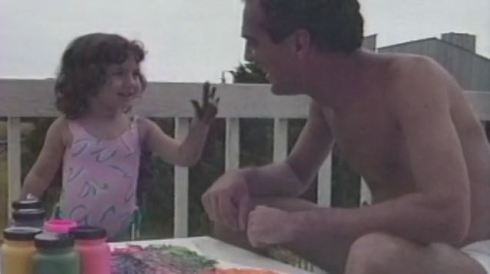In January, Rhonda Vigeant, co-owner of Pro8mm, provider of cameras, film, processing, digital mastering, and family archival services, began a weekly live Internet radio show and podcast called the Home Movie Legacy Project. The show appears every Wednesday at 4:00pm Pacific/7:00pm Eastern on the Rock Star Radio Network.
Each week features a guest talking about an aspect of home movies and amateur filmmaking, such as home movies from Vietnam, home movies as stock footage, and crowd-sourced funding for digitization projects. This week’s guest (May 7th), is “film whisperer,” archivist, scholar and woman-about-town Snowden Becker, who will discuss her career in home movies.
In addition to the podcast, Rhonda recently published the book “Get ‘Reel’ about Your Home Movie Legacy…. Before It’s Too Late,”
Source: Facebook, HomeMovieLegacy.com





